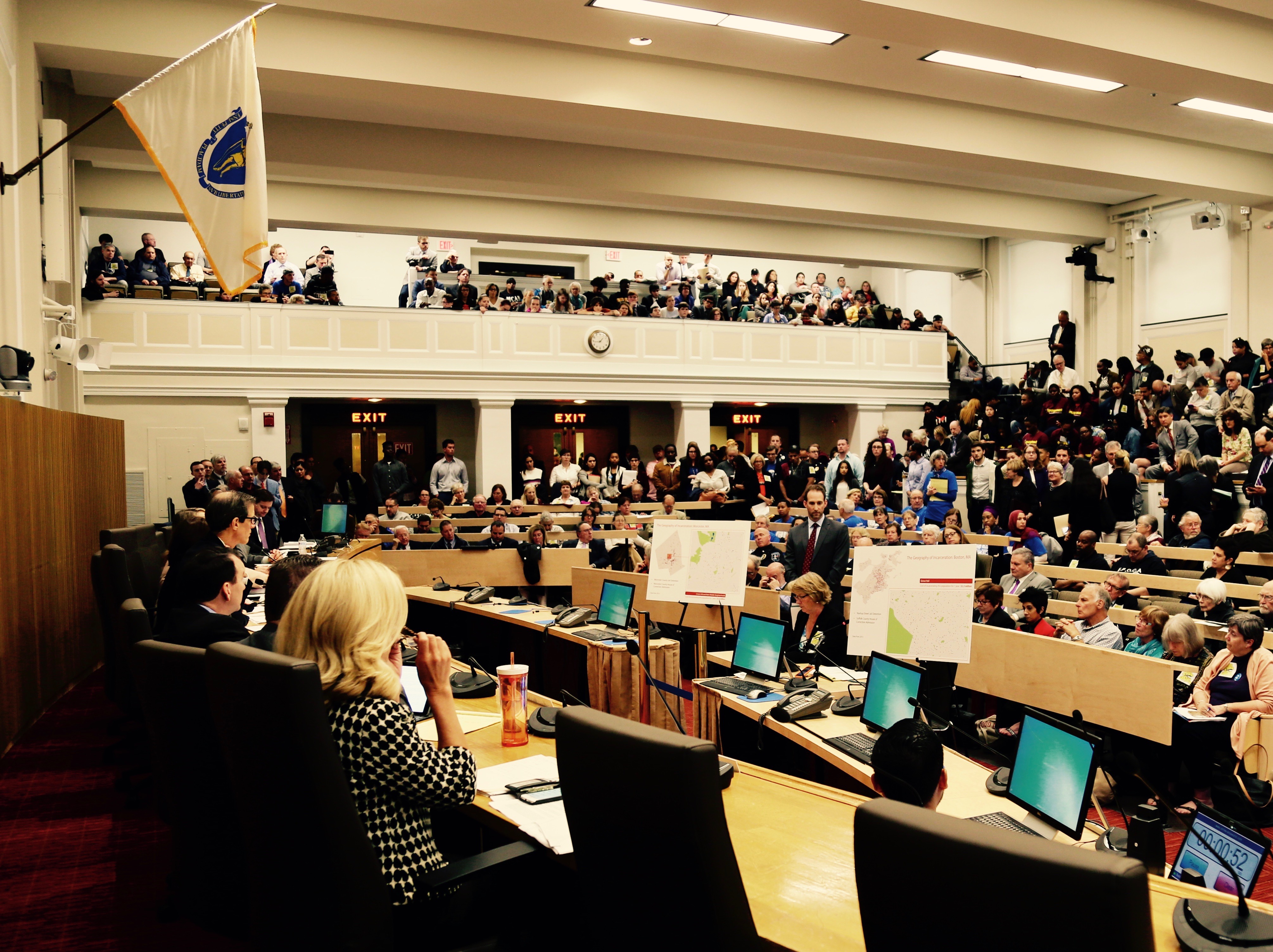
June 2017 will be remembered as an important milestone for criminal justice reform in Massachusetts. After numerous commissions, taskforces, research reports, and independent analyses, legislators are looking at a bevy of seriously substantive criminal justice reform proposals.
 Those engaged in the long fight for comprehensive criminal justice reform should pause for a moment to reflect on their accomplishments. All of the energy they have brought to the issue has been fruitful. It got lawmakers thinking, and now numerous ideas are on the table that weren’t a part of the conversation just a few years ago. Senator Brownsberger got into the minutia and crafted an intricate bill to ensure that fines, fees, and criminal records don’t keep formerly-incarcerated individuals inescapably mired in the courts. Representative Carvalho read the research and introduced legislation to move young adults between the ages of 18 and 20 to the juvenile system, where they can get more developmentally appropriate services and better outcomes. Representative Keefe and Senator Sonia Chang-Diaz are leading the way on a justice reinvestment fund that acknowledges the legacy of tough-on-crime policies on minority urban neighborhoods and seeks to heal the wounds.
Those engaged in the long fight for comprehensive criminal justice reform should pause for a moment to reflect on their accomplishments. All of the energy they have brought to the issue has been fruitful. It got lawmakers thinking, and now numerous ideas are on the table that weren’t a part of the conversation just a few years ago. Senator Brownsberger got into the minutia and crafted an intricate bill to ensure that fines, fees, and criminal records don’t keep formerly-incarcerated individuals inescapably mired in the courts. Representative Carvalho read the research and introduced legislation to move young adults between the ages of 18 and 20 to the juvenile system, where they can get more developmentally appropriate services and better outcomes. Representative Keefe and Senator Sonia Chang-Diaz are leading the way on a justice reinvestment fund that acknowledges the legacy of tough-on-crime policies on minority urban neighborhoods and seeks to heal the wounds.
Over the course of two packed hearings this month, members of the Judiciary Committee demonstrated how intensely they are weighing all of these proposed policy changes. The full committee stayed throughout both lengthy hearings and came prepared to pose thoughtful questions to those who offered testimony.
At a time when we often see those in government as risk-averse and focused mostly on getting done only what has universal appeal, we should take note of the many legislators who are digging in and working these issues hard. By deeply immersing themselves in criminal justice reform and pressing for comprehensive change, they are sustaining our legislature’s long tradition of leadership on matters that make for a more just and equitable commonwealth.
Here in Massachusetts
Sen. Sonia Chang-Diaz worries about “analysis paralysis” as a huge array of criminal justice bills are considered by the legislature.
On the Boston Globe opinion page, former Bristol CountySheriff Frank Cousins and Suffolk County Sheriff Steve Tompkins come out in support of legislation to gradually raise the age for those who fall under juvenile court jurisdiction. Judge Nancy Gertner also opines in favor of the change. State lawmakers have made it clear that reducing young adult recidivism is a priority.
Prosecutors and a legislator want DAs to be able to appeal when they think bail has been set too low.
Governor Baker proposes a legislative fix to a no-bail provision covering three-time drunken driving or drug-impaired drivers. The governor was responding to a recent Supreme Judicial Court decision that said the wording of the existing law was ambiguous.
Margaret Monsell of the Massachusetts Law Reform Institute, Rahsaan Hall of the American Civil Liberties Union of Massachusetts, and Leslie Walker of Prisoners’ Legal Services say district attorneys abuse mandatory minimum sentences.
Ben Forman fact-checks a set of talking points the Massachusetts District Attorney’s Association is using to push back against reform.
Another Bristol County inmate dies of an apparent suicide.
Around the Country
Art collector Agnes Gund sells a Lichtenstein for $165 Million to create a fund for criminal justice reform.
Evangelical leaders are pushing for criminal justice reform
Louisiana, long the poster-child of over-incarceration, passes sweeping bipartisan criminal justice reform legislation. The package is projected to reduce the prison population by 10 percent and save $262 million over the next decade. FAMM praises Louisiana for eliminating most mandatory minimums.
Oklahoma Governor Mary Fallin signs the last of three criminal justice reform bills.
Criminal justice reform is reportedly saving New York $302 million a year.
New Jersey pats itself on the back for bipartisan success on bail reform.
From the Researchers
Measures for Justice unveils a new website providing county-level data from arrest through conviction for six states. The figures reveal large geographic disparities.
With findings that echo our recent report on correctional expenditure in Massachusetts, the Vera Institute says states don’t always reduce spending when their prison populations fall.
Pew releases new research demonstrating that there is no relationship between drug imprisonment and drug problems.
MIT’s Department of Economics says it will support randomized evaluations to rigorously test prisoner reintegration policies and programs so policymakers can direct their efforts in the most effective way possible.
The New England Journal of Medicine looks at the connection between prison and health.
In the Media
The new issue of Worcester Magazine features a cover story on prisoner reentry.
The Boston Globe ponders how far state criminal justice reforms will actually go.
In the Sunday Review, the New York Times explores using jails as a tool in the fight against addiction.
George Will writes about college in prison for the Washington Post.
